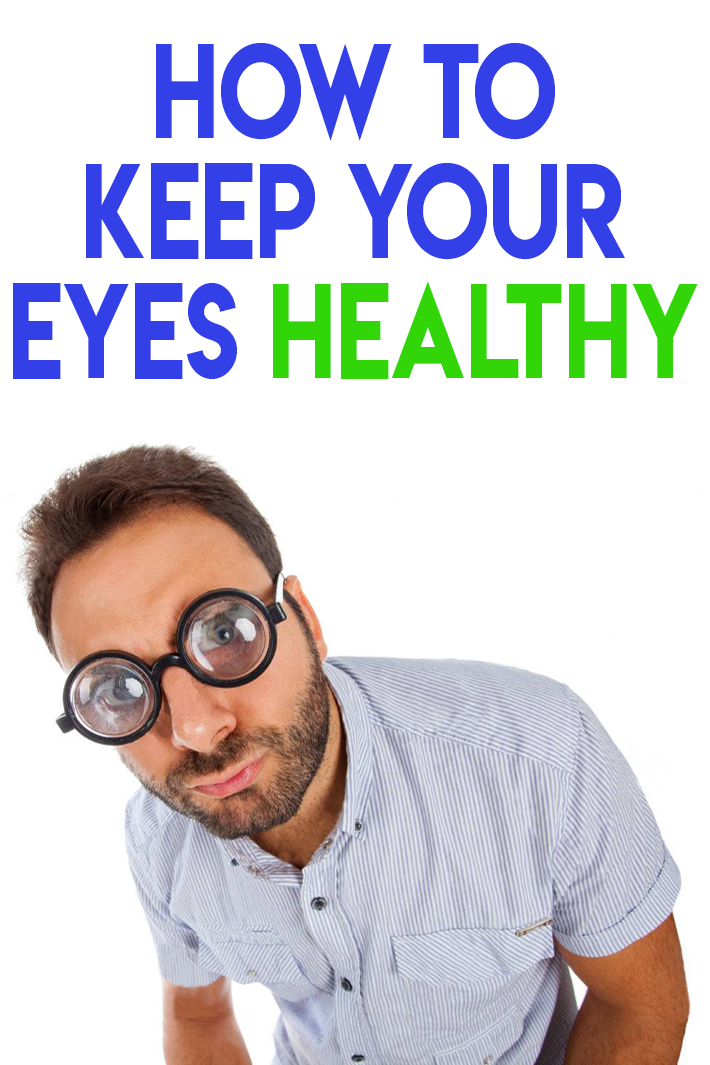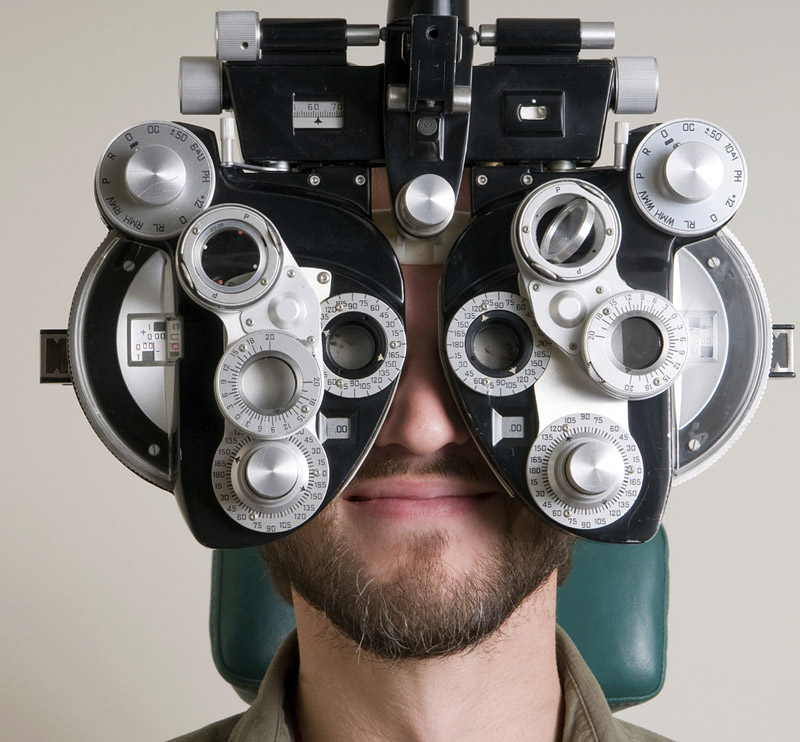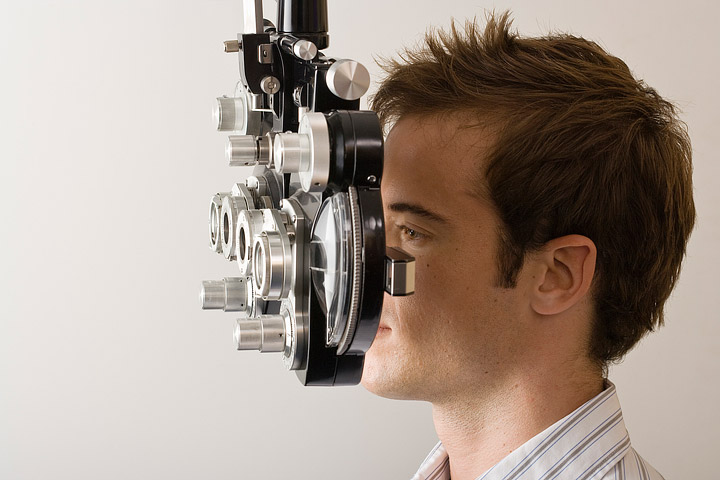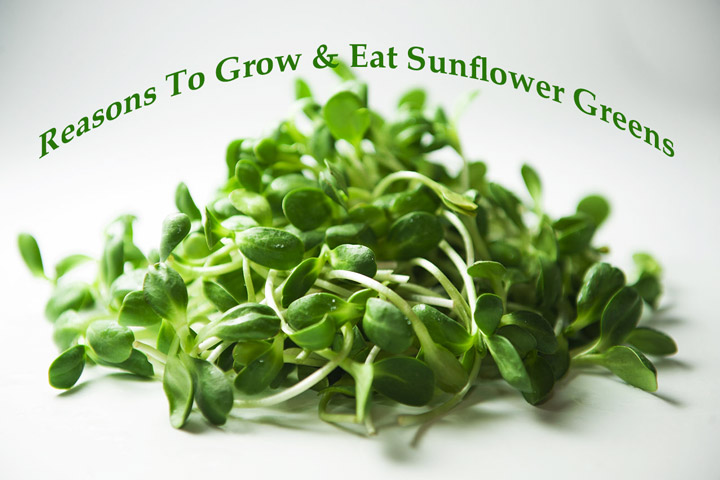
Want to keep your eyes in great shape for years to come? These everyday habits will help you see a clear future.
How often do you think about your vision? If you wear glasses or contact lenses, by now you’re probably on autopilot. If your sight has always been perfect, you might fear the pending need for reading glasses. But there are more serious vision issues that keep eye doctors up at night—like the 2,000 job-related eye injuries that happen in this country each day. And the 1 million annual doctor visits for keratitis, an infection linked to improper contact-lens care. Plus, age-related macular degeneration, which affects at least 11 million people and can permanently impair sight. Fortunately, these things are largely preventable.
“There are many everyday things people do that increase their risk of eye disease,” says James Tsai, M.D., the president of the New York Eye and Ear Infirmary of Mount Sinai, in New York City. Here, Tsai and other top doctors offer ways to ward off both short- and long-term vision problems so you can stay sharp.
What you must do
Wear sunglasses outdoors.
Believe it or not, even your eyes can get “sunburned.” “Just as UV damage accumulates on skin over a lifetime, this also happens to the surface of the eyes,” says Rachel Bishop, M.D., the chief of the consult-services section of the National Eye Institute, in Bethesda, Maryland. Over time, UV exposure can put you at higher risk for cataracts (which cloud the vision), thickening of the eye tissue, and skin cancer around the eyes. Lenses with UVA and UVB coatings will reduce those risks. (Polarized lenses reduce glare but don’t offer much additional sight protection.)

Play it safe with your contacts.
Did you know you should wash your hands before putting in—and removing—contact lenses? Up to 90 percent of wearers don’t correctly care for their lenses, according to the Centers for Disease Control and Prevention (CDC). This often results in keratitis, a treatable inflammation of the cornea. However, “certain infections can seriously damage the eye, sometimes in as little as 24 hours, and can even be irreversible,” says Carolyn Carman, O.D., the director of the Center for Sight Enhancement at the University Eye Institute at the University of Houston. Take care: Wash your hands whenever you must touch your eyes, and clean your lens case with hot water weekly. If your eyes are red and irritated, “wear glasses to give your eyes a break,” says Jeff Pettey, an assistant clinical professor of ophthalmology at the University of Utah Moran Eye Center, in Salt Lake City.
Quit smoking.
Flush, don’t blink. When soap or another irritant gets in your eyes, use water, not tears, to flush the substance out, especially if it’s an alkaline solution (like some toothpastes) or a cleaning product (like bleach). Such irritants may not sting as much as acidic solutions (for example, vinegar) but can be more damaging to the eyes, says Carman. Tears can’t flush away irritants as quickly or as thoroughly as water can. Hold your face under a running faucet or shower, or pour water onto your eye from a clean cup repeatedly for 15 minutes. If it still stings, call an eye doctor.
What you should do
Wear protective goggles. (Yes, really.)
Planning to do yard work or clean the tub? Protective eyewear can keep rocks, branches, chemicals, and more away from your eyes. “This simple precaution reduces the risk of permanently affecting your vision,” says Carman. Sturdy, snug wraparound glasses with polycarbonate lenses can protect against splatters and branch pokes, but certified ANSI Z87.1–rated safety goggles are truly effective at resisting high-impact debris.
Make an eye appointment.
At around age 40, everyone should get a comprehensive dilated-eye exam by an optometrist (a specialist who examines eyes to determine whether a person needs glasses or medical treatment) or, preferably, an ophthalmologist (a doctor who can diagnose and treat eye problems and diseases). Age-related macular degeneration and glaucoma (a loss of peripheral vision caused by pressure-related nerve damage in the eyes) are among the leading causes of blindness; both can be slowed if caught early, says Natasha Herz, M.D., a clinical spokesperson for the American Academy of Ophthalmology. Most healthy adults should get an exam every two to three years. If you have diabetes or high blood pressure—both risk factors for vision problems—see an ophthalmologist yearly.

Look away from the light.
It’s not a myth: Staring at ultrabright objects, like the sun or laser pointers, can permanently damage your sight. “Even if you look with sunglasses, you can get damage in the center of your vision,” says Tsai. Glancing at the sun at the end of the day isn’t as bad—the light rays are reflected—but stay safe by limiting the time you spend staring off into the sunset.
Keep your glasses on standby.
Because contact lenses act like sponges, they can trap infection-causing bacteria on your eye, says Tsai. Up to one in every 500 contact-lens wearers gets a serious infection each year. Consider wearing glasses while in places that may harbor unusual bacteria species, like hot tubs or golf courses.
What you could do
Relax your eye-rubbing.
Vigorous rubbing can cause more damage than relief. Not only will it stretch the ultra-delicate skin around your eyes but it could also cause a corneal abrasion, elevate eye pressure, and cause visual distortions (such as seeing halos), says Tsai. Instead of rubbing, address the source: If sooty scented candles or your sister’s cat makes your eyes itchy, do what you can to avoid those triggers.

Go easy on the yoga headstands.
Standing on your head can cause your eye pressure to skyrocket, says Tsai. Depending on your eyes’ tolerance for high pressure, this may exacerbate optic-nerve damage, such as glaucoma. That’s why headstands and other regular inversions should be avoided by anyone with glaucoma, even in its early stages. In yoga class, skip these poses in favor of something more gentle, such as a legs-up-the-wall pose.
Follow the 20-20-20 rule.
Does it seem like staring at your computer or phone screen zaps all moisture from your eyes? That’s because we don’t blink as much during near- task activities, says Bishop. Dry eyes can be painful and can, in severe cases, lead to scars or ulcers on the cornea or loss of vision. To counteract this, keep screens lower than your sight line so your eyes don’t open as wide. (This helps to retain more moisture.) And follow the 20-20-20 rule: Every 20 minutes, take a 20-second break and look 20 feet into the distance. Your eyes can rest, refocus, and rehydrate with some much-needed blinks.
Listen to your eyes.
Do you ignore your watery eyes when you chop onions? Next time, take heed. That’s your body’s way of telling you to change your situation. What may seem like a temporary irritation from things like raw onions, hot peppers, and wood-burning fires can lead to inflammation, says Tsai. Protect yourself by keeping your distance from fire pits. Also try Bishop’s kitchen technique: Open the windows for ventilation, and enlist those handy goggles for chopping onions.





Leave a Reply